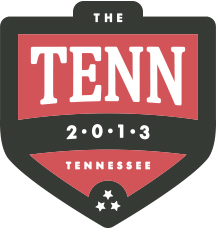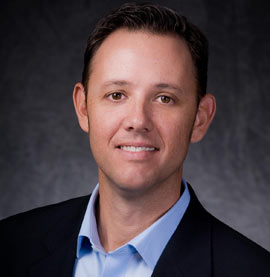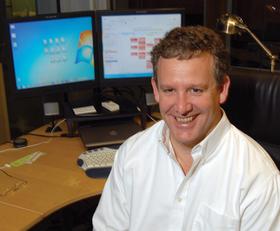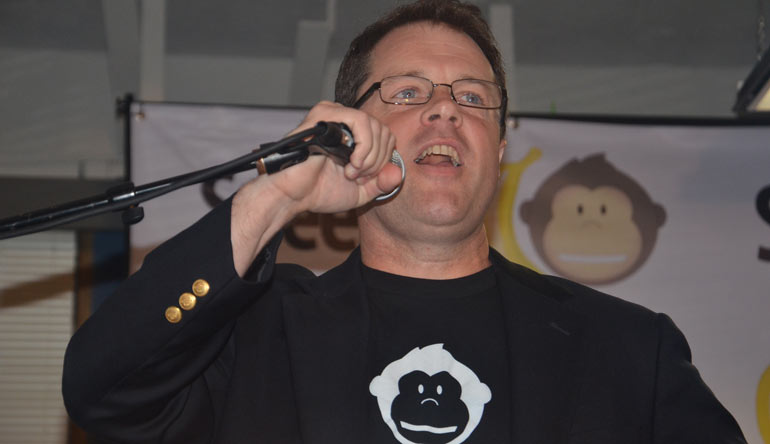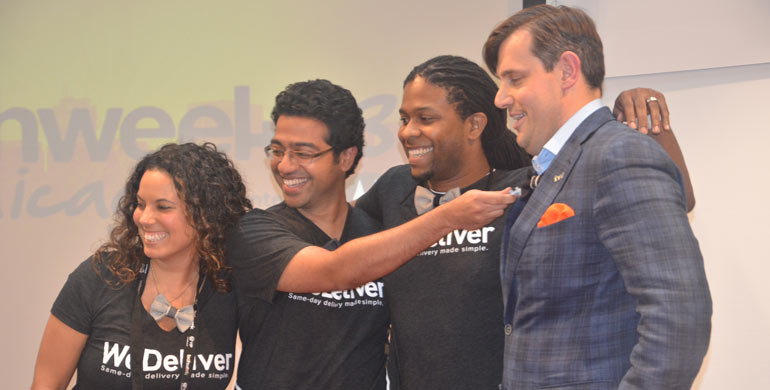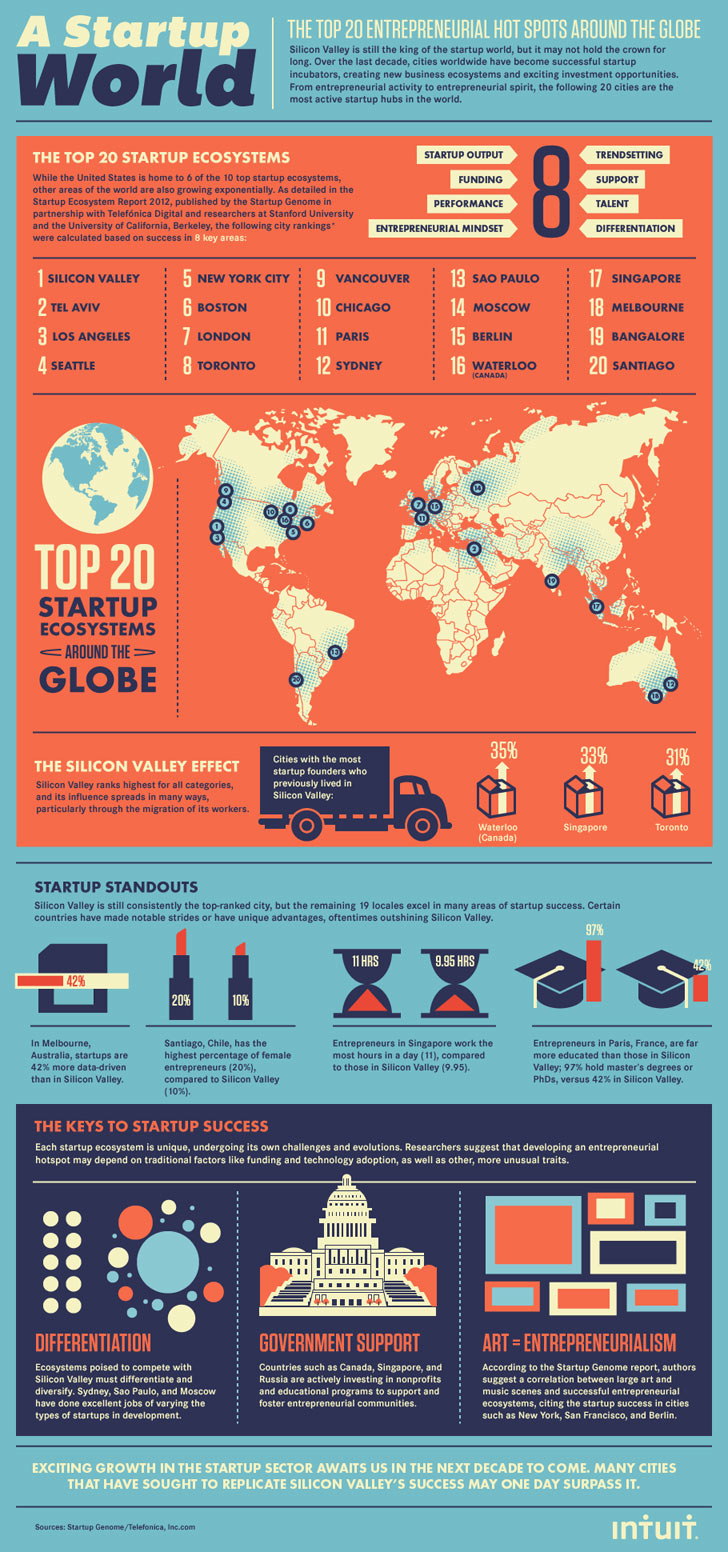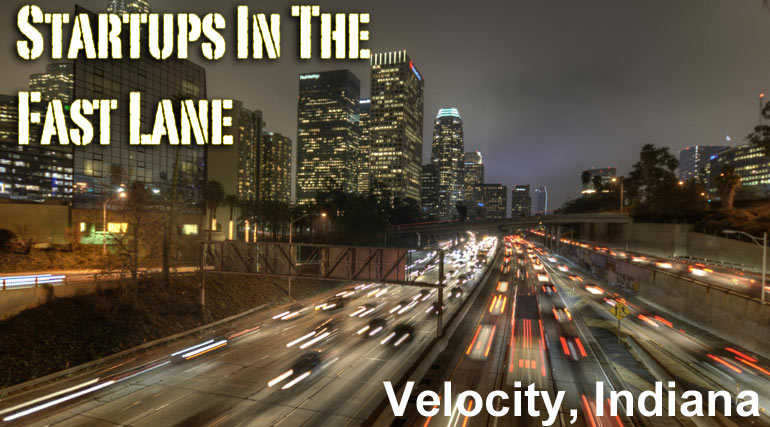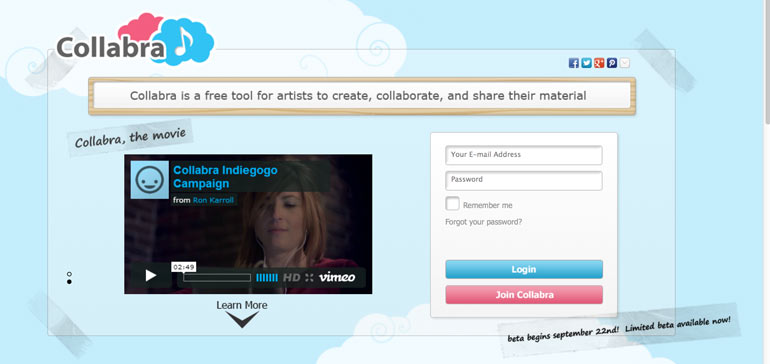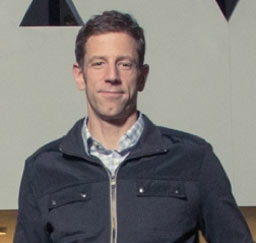When you think great educational game startups, the first place that comes to mind probably isn’t Kentucky. But here at Nibletz, we make sure you know about the great startups everywhere.
SLIC Games (pronounced slick), the creator of Gadzookery, is the second great Louisville startup focused on creating amazing educational games. The first we told you about was Kodable. We first reported on Kodable back in November. Now, thanks to that Louisville startup my six year old is learning how to code.
While Kodable focuses on teaching children to code through a fun interactive game, the folks at SLIC (also based in Louisville) believe that games are for everyone, even adults. That’s why Gadzookery is fun for all ages. In fact, SLIC games co-founder Simon Brooks prides himself on the fact that Gadzookery is teaching without the learner even knowing.
We got a chance to talk to Brooks about SLIC, Gadzookery and Louisville. Check out the interview below.
What is your startup called?
SLIC games LLC (pronounced Slick) is named after the original founder Simon, and his three pets Lexy, Izzy, and Chelsea. Lexy & Chelsea are two big old mutt dogs, and Izzy was his cat. Unfortunately Izzy died during the development of Gadzookery, but he lives on in our games in both our company logo and virtual currency.
What does your company do?
Primarily we’re a gaming company with the focus on making them both social and educational. There are five original scalable games we plan to develop over the coming 18 months, although we do have other ideas that are little bit outside the box of gaming while remaining scalable.
Who are the founders, and what are their backgrounds
Simon Brooks hails from London, England. He’s lived in Louisville, KY for approaching ten years. His background is mostly sales & marketing, and small business ownership. He’s creative with ideas, be it for new products, or improving systems within an office environment such as marketing tactics, client retention, and other general office procedures. Currently he has nine original app ideas including Gadzookery that he wants developed.
Within the last few months Greg Gorman joined SLIC games LLC as tech lead. In his career, Greg has worked on projects ranging from the Artificial Heart program, to automated analysis of CAT scans for non-destructive evaluation of space shuttle engine blades.
Greg currently has aimed his focus on mobile app and mobile web development.
Greg evolved from the initial web developer at TechRepublic, to Director of Application Development, building the team that built the site. TechRepublic went from whiteboard concept to a website with 16 million page views per month in less than two years.
Greg grew up in Louisville, KY and received Bachelor of Science and Master of Engineering degrees in Engineering Math and Computer Science from the University of Louisville.
What problem do you solve?
Gadzookery is a very educational game aimed at all age groups, even adults. The problem with educational games is they’re either aimed solely at kids, or just plain old boring. Gadzookery educates without the user even realizing as it’s fun. It’s vocabulary building, and boosts creative writing skills.
Why now?
Simon started this project well over one year ago by himself. His dream was to get the game launched in a timely fashion and be the sole owner laying back on a beach somewhere exotic. All the work was outsourced. The problem was with designers and developers. They were either very slow, or in the developers’ case, crooked. We’ve gone through four different developers in getting the game launched. Simon has an absolute nightmare outsourcing story that he plans to share with would be non-techie tech entrepreneurs at some point. He’s learned a lot along the way, and realized in this industry often less is more. This is the reason a founding tech lead was brought in, to drive the business and make the right technical decisions.
What are some of the milestones your startup has already reached?
After around 18 months trying to get launched, just getting the game launched feels like a massive milestone!
However along the way there have been some bright spots:
Last year due to delays and spiraling costs Gadzookery was listed on Appbackr (a crowdfunding for profit portal). It actually did very well there. Most companies struggle to raise $500 but Gadzookery raised a little over $10,000 It was going head to head with an app called ‘Old School’ which was officially licensed by Paramount Pictures. More of the appbackrs liked Gadzookery over Old School. That felt really good.
There was another small feel good moment. Simon’s biggest inspiration in the gaming business are the Bettner brothers who co-founded Words With Friends. Much to Simon’s delight at the time one of the brothers gave him a small endorsement. To most people that’s just a small moment, but to Simon, with all the stress of outsourcing he was going through that was a huge moment. Gadzookery is unofficially already also getting known as Sentences With Friends as that’s the style of game play so the connection is quite apparent.
What are your next milestones?
We do need to submit some upgrades to Gadzookery first, but after that the first milestone is 1 million downloads of Gadzookery Free. That’s just the start as future goals include a daily user base of 10 million plus, and having the game played in classrooms. Another goal is to have the game played on a national T.V show, such as a satire talk show, where the host and guest play against each other using for the target word a topic that is currently trending.
Short time milestones or goals, include building a very strong in house team so that outsourcing is never even an option, and the full vision of SLIC games LLC materializes.
Where can people find out more? Any social media links you want to share?
https://www.facebook.com/




